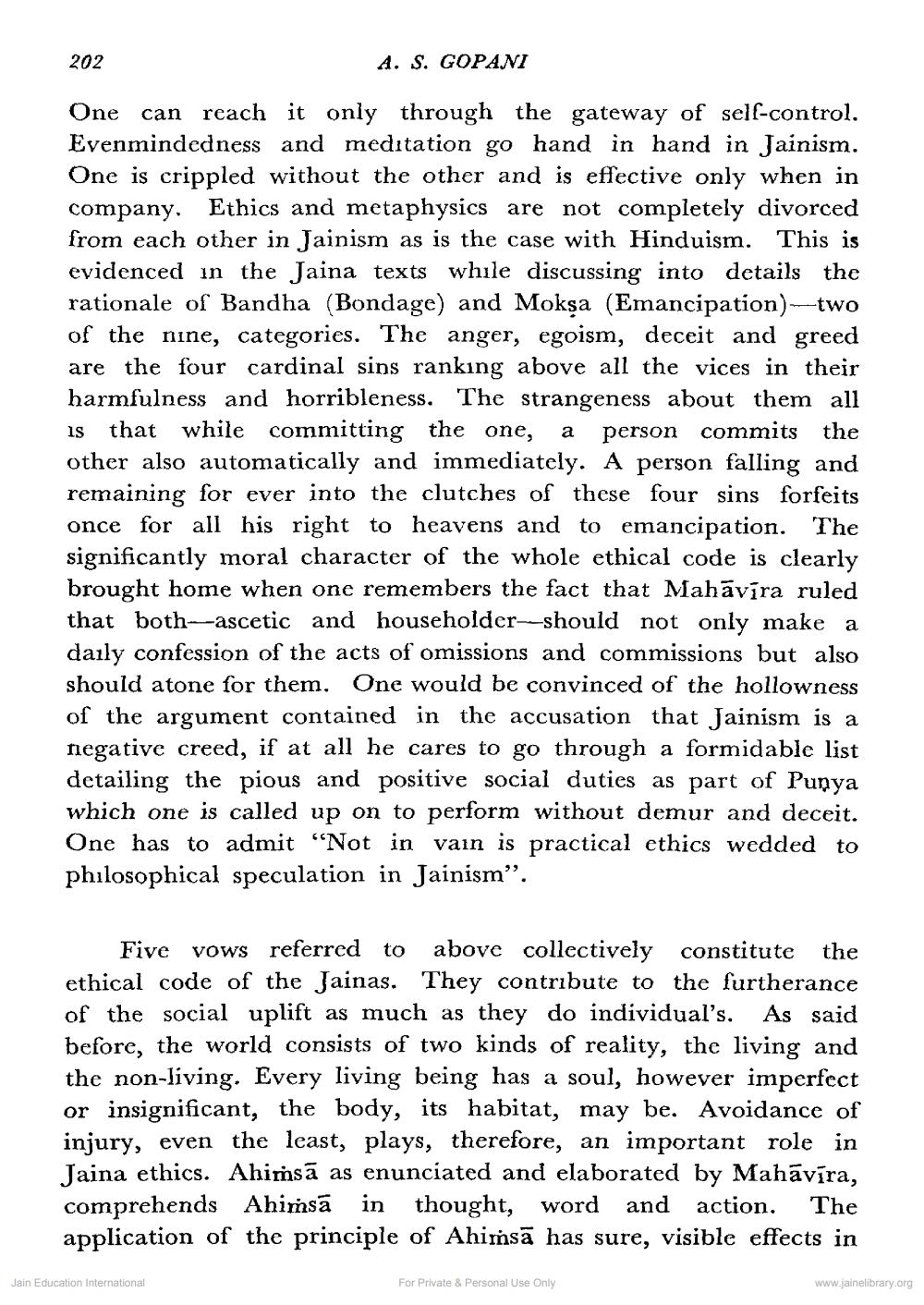________________
202
A. S. GOPANI
One can reach it only through the gateway of self-control. Evenmindedness and meditation go hand in hand in Jainism. One is crippled without the other and is effective only when in company. Ethics and metaphysics are not completely divorced from each other in Jainism as is the case with Hinduism. This is evidenced in the Jaina texts while discussing into details the rationale of Bandha (Bondage) and Moksa (Emancipation)--two of the nine, categories. The anger, egoism, deceit and greed are the four cardinal sins ranking above all the vices in their harmfulness and horribleness. The strangeness about them all is that while committing the one, a person commits the other also automatically and immediately. A person falling and remaining for ever into the clutches of these four sins forfeits once for all his right to heavens and to emancipation. The significantly moral character of the whole ethical code is clearly brought home when one remembers the fact that Mahāvīra ruled that both-ascetic and householder-should not only make a daily confession of the acts of omissions and commissions but also should atone for them. One would be convinced of the hollowness of the argument contained in the accusation that Jainism is a negative creed, if at all he cares to go through a formidable list detailing the pious and positive social duties as part of Punya which one is called up on to perform without demur and deceit. One has to admit “Not in vain is practical ethics wedded to philosophical speculation in Jainism”.
Five vows referred to above collectively constitute the ethical code of the Jainas. They contribute to the furtherance of the social uplift as much as they do individual's. As said before, the world consists of two kinds of reality, the living and the non-living. Every living being has a soul, however imperfect or insignificant, the body, its habitat, may be. Avoidance of injury, even the least, plays, therefore, an important role in Jaina ethics. Ahimsā as enunciated and elaborated by Mahāvīra, comprehends Ahimsā in thought, word and action. The application of the principle of Ahimsā has sure, visible effects in
Jain Education International
For Private & Personal Use Only
www.jainelibrary.org




